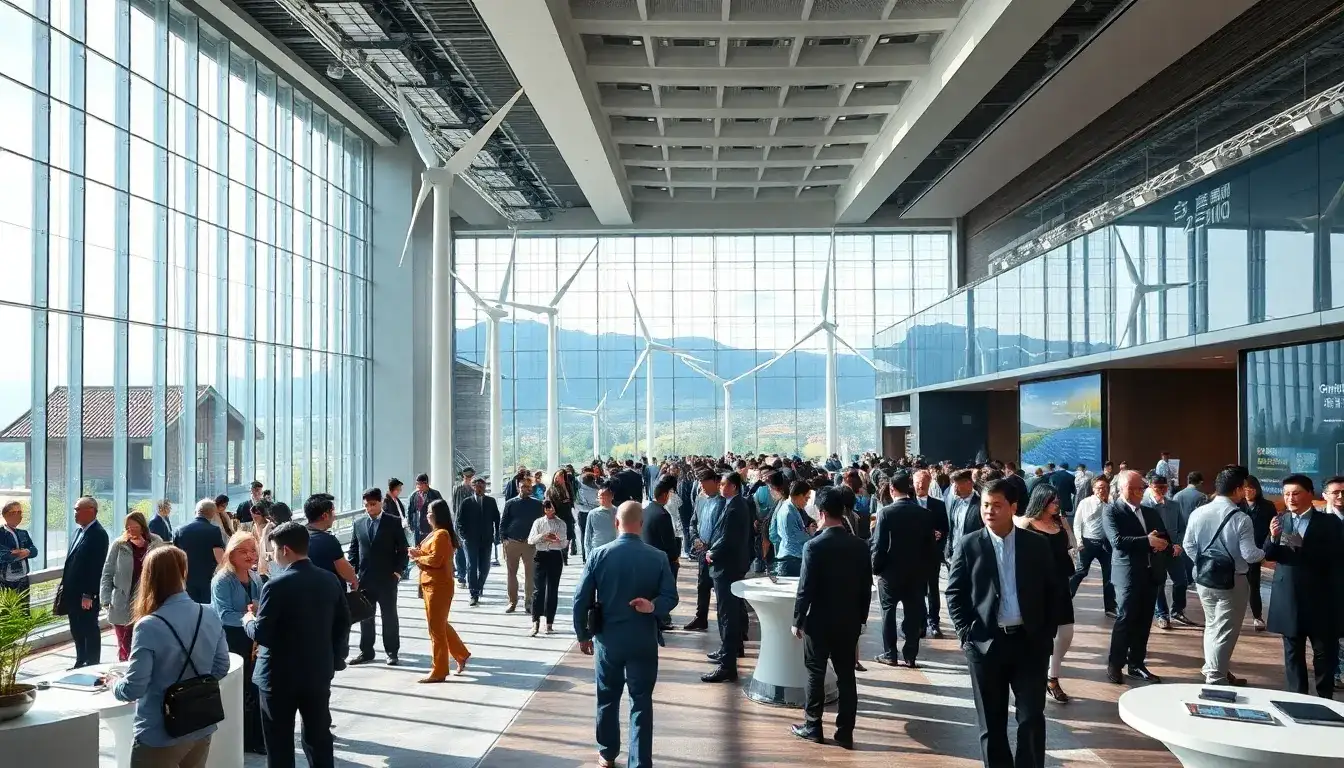
On March 22, 2025, the “2025 China Wind Energy Equipment Key Enterprises Leaders Summit” opened in Hangzhou. This event was organized by the Wind Energy Equipment Branch of the China Agricultural Machinery Industry Association and the Wind Energy Special Committee of the China Renewable Energy Society, with Yunda Co., Ltd. serving as the host. The theme of the summit is “Cooperative Breakthrough · Ecological Co-construction“, focusing on the development opportunities and challenges in the wind power industry during the transition from the 14th Five-Year Plan to the 15th Five-Year Plan.
The chairman of Yunda Co., Ltd., Chen Qi, and deputy general manager Wei Min were invited to attend the summit, where they, along with other guests, explored new technologies and pathways for the future of wind power, collaboratively shaping a new blueprint for the high-quality development of China’s wind energy sector.
Chen Qi expressed gratitude to the Wind Energy Equipment Branch of the China Agricultural Machinery Industry Association and the Wind Energy Special Committee of the China Renewable Energy Society for creating this communication platform for professionals in the wind power industry. He warmly welcomed the experts, scholars, and industry colleagues present at the summit. He emphasized that after decades of hard work, China’s wind power has evolved from a “follower” to a “leader” in the global green energy revolution, particularly excelling in areas such as the industrial supply chain, large-scale turbine development, and the cost-effectiveness of electricity generation from wind farms. He noted that the exploration of industrial technology has entered a “no man’s land.” However, he also stressed the importance of recognizing that the essence of wind power equipment lies in optimizing the cost of electricity generation over its entire life cycle and continuously enhancing the reliability of wind farms.
Yunda Co., Ltd. strictly adheres to the product development process of “design – prototype validation – small batch – large-scale production.” They delve into the fundamental logic of wind power technology and continuously work to establish a more rigorous and practical standard system, specification system, design system, and verification system that aligns with the safety boundaries of large-capacity wind turbines, ensuring that wind power equipment achieves a synergistic development of “high quality” and “high performance.”
As China’s power system reform gradually delves deeper, the industry is transitioning from a “policy-driven” to a “market-driven” development model. Chen Qi pointed out that wind power equipment companies bear the mission of promoting a stable and healthy development of the industry. This requires continuous technological iteration and innovation in business models. For example, leveraging technological innovation, intelligent operations, and refined management of power plants can reduce the life cycle costs of renewable energy power stations. Additionally, there is a need to accelerate the research and development of decision-making platforms for renewable energy trading that adapt to new models to enhance the trading capabilities of power stations, optimize trading revenues dynamically, and build market competitiveness suitable for new power systems.
He looks forward to joining forces with industry peers to share the mission and work together, focusing on product research and development, profit guarantees, and pricing negotiation mechanisms. They aim to explore “renewable energy +” application scenarios and collaboratively construct a new framework for the openness of China’s wind power sector, thus driving high-quality development in the wind power industry.
During the summit, Chen Qi and Wei Min engaged in in-depth discussions with attendees on topics such as strategic considerations and positioning for the wind power industry during the 15th Five-Year Plan, directions and trends in technological innovation, the construction of industrial ecosystems, and policies for market-oriented electricity trading.







